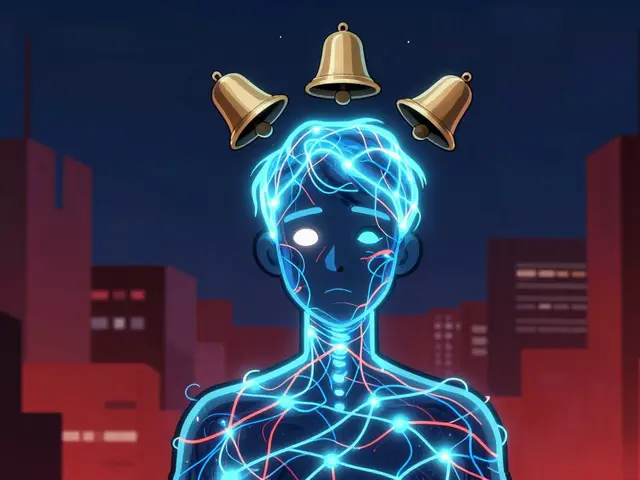Anemia: What to watch for and what to do
Feeling tired all the time, short of breath after small tasks, or noticing pale skin? Those are common signs of anemia. Anemia means your blood carries less oxygen than it should, usually because you have fewer red blood cells or less hemoglobin. That makes everyday activities feel harder and can hide a serious health problem if left unchecked.
Common causes and simple tests
Iron deficiency is the top cause, but anemia can also come from vitamin B12 or folate lack, chronic disease, sudden or ongoing blood loss, or inherited conditions like sickle cell or thalassemia. Wondering how your doctor figures this out? The basic check is a complete blood count (CBC) that shows hemoglobin and hematocrit. Follow-up tests often include ferritin (iron stores), transferrin or TIBC, vitamin B12, folate, and a reticulocyte count to see if your bone marrow is making new cells.
If there’s unexplained low iron or signs of bleeding, doctors may order stool tests for hidden blood, pelvic exams for heavy periods, or scopes (like colonoscopy) for older adults. Acute or severe symptoms—chest pain, fainting, very fast heartbeat—need emergency care right away.
Treatment, diet, and realistic expectations
Treatment focuses on the cause. For iron deficiency, doctors usually recommend oral iron supplements plus dietary changes. Take iron with vitamin C or orange juice to help absorption, and avoid tea or coffee around meals because they block iron uptake. Food sources: red meat, poultry, fish, beans, lentils, spinach, fortified cereals, and eggs. For B12 deficiency, injections or high-dose oral B12 may be needed. If blood loss is the problem, stopping the bleed comes first.
Expect to feel some improvement in energy within 2–4 weeks on treatment, but full recovery of iron stores can take 2–3 months or longer. Oral iron can cause constipation, stomach upset, and dark stools—start with a lower dose if your stomach is sensitive and talk to your provider about alternatives like different formulations or intravenous iron if you can’t tolerate pills or need fast correction.
Prevention tips: eat a balanced diet with iron-rich foods, combine them with vitamin C, get screened if you have heavy menstrual bleeding, and follow prenatal care during pregnancy—pregnant people are at higher risk. If you take medications or have a chronic illness, ask your doctor whether your condition could affect blood counts and how often to test.
If you suspect anemia, don’t guess—get a simple blood test. Treating it early makes daily life easier and helps catch underlying problems before they worsen. If you want, I can summarize what tests to ask your doctor for or suggest iron-rich meal ideas that taste good and are easy to make.
The Importance of Iron in Brain Development: Preventing Anemia in Children
As a parent, I cannot stress enough how crucial iron is for our children's brain development. It plays a vital role in producing neurotransmitters and maintaining healthy cognitive function. Unfortunately, iron deficiency, leading to anemia, can negatively impact their learning abilities and overall growth. So, let's make sure we provide a balanced diet rich in iron, including foods like red meat, poultry, beans, and leafy greens. And don't forget to consult your pediatrician about iron supplements if needed - let's give our kids the best start in life!





